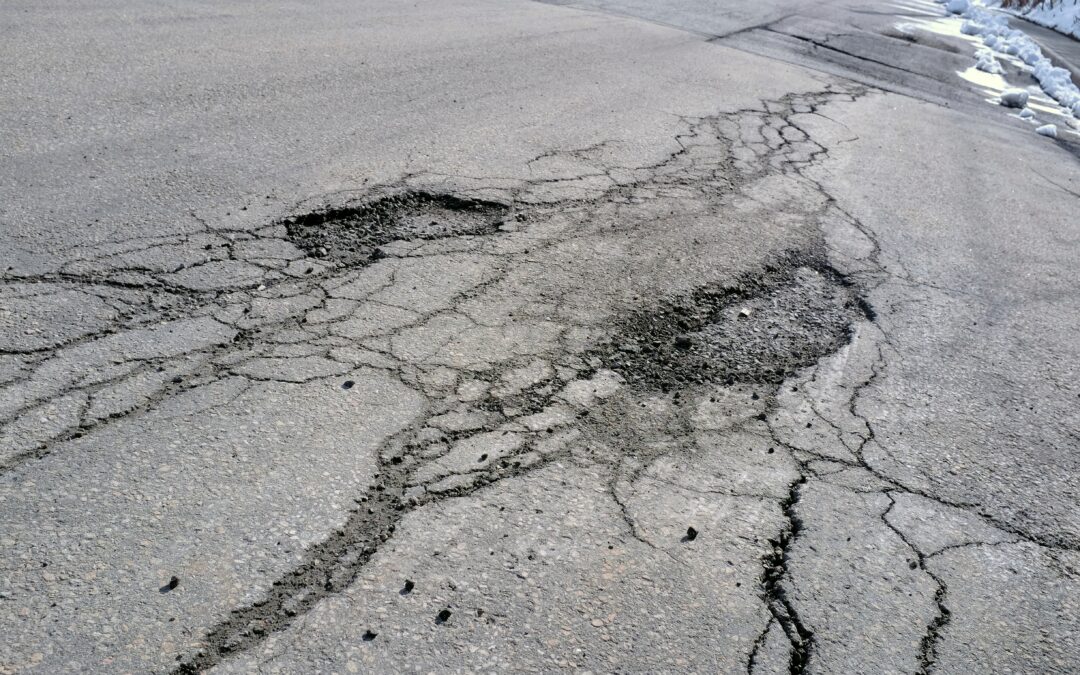This story originally appeared in the Detroit Free Press. Read more here.
No two things may be more predictable in Lansing than spring potholes and talk at the Capitol of a new plan for how to pay for road repairs.
Gov. Gretchen Whitmer has promised a new road funding plan next week, and the road funding industry is all ears.
“We are eagerly awaiting in anticipation,” said Lance Binoniemi, vice president of government affairs for the Michigan Infrastructure & Transportation Association, which pegs Michigan’s annual road funding deficit at more than $4 billion.
Whitmer said at the Detroit Auto Show last month that a new road funding plan would need to include new revenue sources, plus fiscally responsible spending cuts. Her expected plan comes at an interesting time, with money from her $3.5 billion bonding plan for state highways, from 2020, winding down, and with the shift to electric vehicles moving more slowly than many expected, taking away some of the urgency of moving away from fuel taxes as a primary source of road funding money.
Michigan Gov. Gretchen Whitmer is expected to announce a new road funding proposal next week.
Michigan motorists have seen plenty of orange barrels on state highways in recent years and might feel those roads are in relatively good shape, at least relative to decades past, Binoniemi agreed.
But Binoniemi said Wednesday that is less true of local roads and now is the time to approve a new plan before roads and bridges deteriorate further and many skilled workers leave Michigan to work in other states.
As she prepares to lay out a road funding plan next week, Whitmer’s budget also called for $7.8 million for studies and a pilot project on “road usage” revenue options. Many states are looking at charging motorists fees based on miles driven as a way of compensating for expected losses in fuel tax revenues as more drivers shift to electric vehicles.
Stacey LaRouche, a spokeswoman for Whitmer, declined to elaborate on why Whitmer would be planning to present a road funding plan while at the same time calling for a study of road funding options.
But Binoniemi said increased funding in the short-term is important as the slower-than-anticipated shift to electric vehicles has made a new long-term funding solution less pressing.
In November, House Speaker Matt Hall, R-Richland Township, proposed a plan he said would raise $2.7 billion a year for roads, without raising taxes.
Hall’s plan would immediately direct $1.2 billion, and eventually $1.8 billion, in annual corporate income tax revenue to road funding. It would also remove from gasoline sales the 6% sales tax — which is generally not directed toward roads — and replace it with an equivalent increase in the fuel tax — which does go toward roads. Hall said that change would raise an additional $945 million a year to be directed to roads.
Hall said his plan would “hold harmless” funding for schools, much of which comes from sales taxes. But he didn’t detail exactly how that money would be replaced, or how to replace the corporate income tax money that now goes to the general fund, except to say that excessive general fund spending needs to be restrained.
Getting the sales tax off of fuel sales and replacing it with a higher fuel tax is important, Binoniemi said. Motorists expect every penny of tax they pay at the pump to go toward roads and they are unhappy when they find out it doesn’t, he said.
Whitmer pushed her road bonding plan through the State Transportation Commission — without having to get an OK from the Legislature — after lawmakers overwhelmingly rejected her 2019 call for a 45-cent-per-gallon increase in the fuel tax.
Now, the last $700 million from those $3.5 billion in road bonds is being spent this fiscal year, with no plan to replace that money going forward, said Jocelyn Garza, a spokeswoman for the Michigan Department of Transportation.
Before the bonding plan, under former Republican Gov. Rick Snyder, lawmakers approved a $1.2-billion road funding plan in 2015, which combined fuel tax and registration fee increases with injections of general fund money.
Senate Appropriations Chair Sen. Sarah Anthony, D-Lansing, told reporters she was hoping to see specifics on a road funding plan in Whitmer’s budget Wednesday.
“Having a roads plan baked into the large budget presentation is helpful so we can actually start getting some of these conversations and decisions at a formal negotiations point,” she said.
“Obviously we’ve heard from many stakeholders that the number that we need to invest in roads is in the billions, and so having that number fit into the current proposal we just heard, the math doesn’t math. So I look forward to hearing more.”
House Appropriations Chair Rep. Ann Bollin, R-Brighton, said she was disappointed lawmakers didn’t hear more about a roads plan.
“I am concerned that it’s going to be a request for additional revenue as well because as you heard, there’s very little left on the balance sheet and we need to make sure that we’re not only taking care of the highways but the byways and the driveways,” she told reporters Wednesday.

